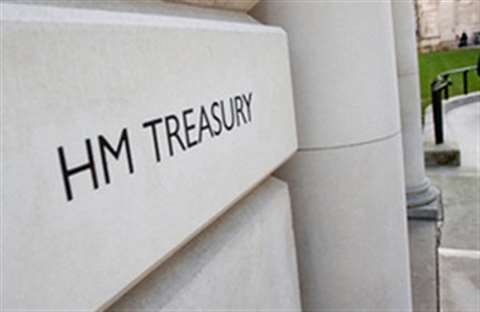Spring Statement fails to deliver for construction
24 March 2022

Leading construction sector associations have deemed the UK Government’s 2022 Spring Fiscal Statement to be another missed opportunity, after it failed to address the industry’s key concerns and challenges.
The ‘mini-budget’ - devised by the Chancellor of the Exchequer, Rishi Sunak, included a 5 pence per litre fuel duty cut, an increase in the employment allowance for small businesses and the removal of VAT from energy-saving home upgrades.
While these changes were widely welcomed by the sector, construction industry leaders say the changes are not enough and that they will do little to help struggling businesses.
In her response to the Spring Statement, Suneeta Johal, CEO of the Construction Equipment Association (CEA), said, “This mini-budget was an opportunity for Rishi Sunak to take significant action to help businesses to minimise the impact of rising inflation, which is at a 30-year high and continues to rise.
“This Spring Fiscal Statement comes at a critical time for manufacturing in the UK – and as expected it did not deliver and was very much an exercise of smoke and mirrors.
“Petrol and diesel prices have soared in recent weeks hitting an all-time high – whilst today’s announcement of a fuel duty freeze and the temporary cut of 5p per litre is welcome, in reality, it will do very little in the way of easing the burden on the construction sector.””
While Johal of the CEA welcomed the increase in employment allowance for small businesses to £5,000, she said the increased National Insurance threshold of £12,570 is still not enough and “will add to costs” when businesses are already experiencing labour and skills shortages.
“It was immediate help our sector needed - and once again Government failed to deliver,” said Johal.
 Suneeta Johal, Chief Executive at the CEA.
Suneeta Johal, Chief Executive at the CEA.
Furthermore, the fact that the budget failed to address the issue of red diesel also drew criticism from both the CEA and the UK’s National Federation of Builders (NFB).
“...despite extensive lobbying, Government has ignored pleas for a delay of the reform of the red diesel and biofuels rebate,” Johal said.
Similarly, Richard Beresford, Chief Executive of the NFB, said, “...the NFB was disappointed that the Chancellor did not take the opportunity to postpone the changes to the construction sector’s entitlement to use Red Diesel.
“As inflation is set to go above 7% this year, and the Government confirmed its intention to levy a further 1.25% of national insurance contributions on employers, the cost pressures on construction businesses are unprecedented.”
He added, “While the fuel duty cut is welcome for the country at large, the reality is that in construction, the effective rate of duty is set to rise by 47p per litre because of the removal of entitlement to use Red Diesel.
“The decision not to delay this will hurt businesses at the time when they most needed respite from rampant inflation”.
The end of the red diesel rebate system, which is due to happen on 1 April 2022, has been a major concern for construction sector companies for some time.
Earlier this month 15 of the UK’s largest and most influential construction sector associations signed an open letter to the Chancellor, urging the Government to postpone the system’s demise by at least 12 months.
Suzannah Nicole, Chief Executive of Build UK, Brian Berry, CEO of the NFB and Howard Button, CEO of the National Federation of Demolition Contractors, were among those that signed the letter.
Other signatories included the leaders of the International Powered Access Federation (IPAF), the Scottish Building Federation, the Builders Merchants Federation, the Civil Engineering Contractors Association, the Construction Employers Federation and the Scottish Plant Owners Association.
Also commenting on the Spring Statement, Callum Mackintosh, President of Scottish Plant Owners Association, described it as “yet another blow to the construction sector”.
Mackintosh added, “With cost pressures on construction at unprecedented levels, the spring statement should have been the chancellor’s opportunity to inject confidence into the construction and associated industries but instead the industry was disappointingly overlooked.”
As for the announcement of the VAT cut for energy-saving home upgrades however, Richard Beresford of the NFB, said, “The NFB, along with many others in the industry, has repeatedly, over many years, called on the Treasury to remove the VAT on measures which improve energy efficiency.
“To us it always seemed like a ‘no-brainer’ to help incentivise the public to ‘green’ their homes and meet our country’s Net Zero ambitions and today we can finally welcome the decision the Chancellor has taken, it is long overdue but at last it is here.”
STAY CONNECTED



Receive the information you need when you need it through our world-leading magazines, newsletters and daily briefings.
CONNECT WITH THE TEAM








